Even in challenging times, we at TAU continue to dream, learn, and build new global opportunities, including through our Student Exchange Program.
The call for outgoing exchange for Spring 2026 opens July 1. Whether you’re an undergraduate, graduate, or PhD student, TAU’s University-wide student exchange program can take you to new places academically and personally. Still not sure it’s for you? We asked someone who’s been there.
Here we break down what to expect, with insights from Oren Vaserman, TAU student in East Asian Studies BA who just recently returned from a semester in Beijing at Peking University.
Is exchange only for certain students or programs?
The exchange program is open to the vast majority of TAU students, spanning all faculties and degree levels, from undergrad to PhDs, with only a few exceptions of programs that have special schedule limitations.
“I went to Beijing because I wanted to live and study in East Asia. Since I was studying Chinese at TAU, it made sense to go to China and experience the culture firsthand.”
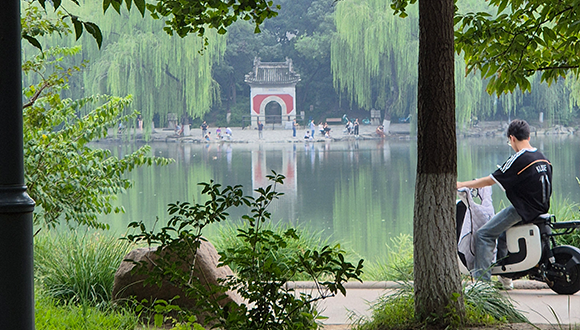
Peking University even has a lake on campus!
Whether you’re studying environmental studies, history, business, biology, or other fields, there’s a destination that fits. Browse the catalog to find your perfect match.
Will I fall behind in my degree at TAU if I go abroad?
Not if you plan ahead. At TAU, all courses must be pre-approved before departure, and exchange credits count toward your degree.
“I’m graduating on time because I got course approvals from my department before I left. But if not, I probably would’ve needed to put in extra effort this semester or take extra courses to finish on time. Planning ahead really paid off.”
The key is coordination with your academic advisor and with the TAU Outgoing Student Exchange Office at the Lowy International School. Students are expected to complete their degrees on time, and exchange should not extend your study period.
How can I shape my exchange to fit my goals?
Your destination and course selection can (and should) align with your academic and personal interests.
“I didn’t just pick a random place. I knew I wanted to be somewhere where I could improve my Chinese and experience the culture.
“The program in Beijing was intense, but that’s exactly what I wanted. Now when professors at TAU mention certain places in class, I can say, ‘I’ve been there.’ It made my studies way more real. My Chinese has also become much more fluent.”
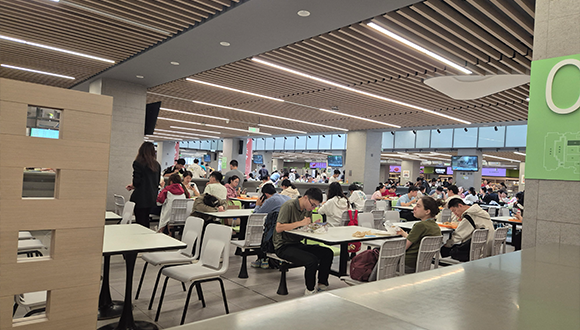
Peking University campus
You can prioritize research, language immersion, or cultural experiences and choose courses in the fields that excite you.
Do I need to speak the local language to go on exchange?
Not at all. Most partner universities offer plenty of courses in English, even in non-English-speaking countries.
Oren studied Chinese before going, but that didn’t mean it was smooth sailing from the start:
“I handed the taxi driver a note with the dorm address because I didn’t really know how to pronounce it properly. In Chinese, if you don’t pronounce something exactly right, people won’t understand you.”
“But over time, I got more confident and started talking to locals. I even joined a club that brought together international and Chinese students for activities like group dinners.”
Even if you don’t speak the language, you’ll be fine. Students manage well with English in countries like Germany, the Netherlands, Korea, France, and others.
Is it just about taking classes?
Far from it. Exchange is about life beyond the classroom.
“I took 20 hours of Chinese a week, and the classes were quite intense. But I also traveled a lot around China. During a national holiday, I went to Shanghai alone for five days.”
“That was the first time I took a trip completely alone. I almost missed the train, everything was a mess, but I managed. And when I saw the Bund, the place you always see in pictures… that moment, I thought, ‘It’s not a picture, it’s real. I’m really here.’”
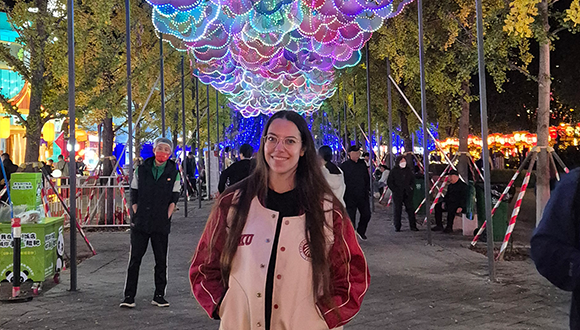
Travelling solo around China—done.
From cultural immersion to exciting trips and new friendships, the exchange experience shapes who you become.
Is it expensive to go on exchange?
It’s more affordable than you think. You don’t pay tuition to the host university, and scholarships are available.
“I thought going abroad would be really expensive, but living costs in Beijing were actually pretty low. Ordering food was easy and cheap once I figured out the apps.
“I’d screenshot the Chinese and translate it later. Once I liked something, I just kept ordering the same thing.”
TAU and other organizations offer scholarships to make exchange accessible to more students.
Is the application process long and complicated?
Not at all. It’s straightforward and user-friendly.
“I thought applying would be a huge deal, but it was manageable. The hardest part was picking the right courses and making sure they’d be approved. TAU Outgoing Student Exchange Office at the Lowy International School helped me figure that out.
“After that, it was just logistics with the visa, flight, and paperwork. The Chinese university was super clear about what to do.”
The application guide walks you through the steps, and staff at the TAU Outgoing Student Exchange Office are there to support you.
What kind of support is available and when do I need it most?
You’ll have guidance from the TAU Outgoing Student Exchange Office and the host university, but independence is an important part of the experience.
“TAU helped a lot before I left, especially when I was trying to navigate the Chinese university’s website and figure out which courses I could take.”
Once I got to Beijing, it was mostly up to me. The university offered dorm options in advance, and I got lucky with a great room. I also contacted an Israeli student who was already there. She met me the next day after I arrived and helped me get settled. That made a huge difference.”
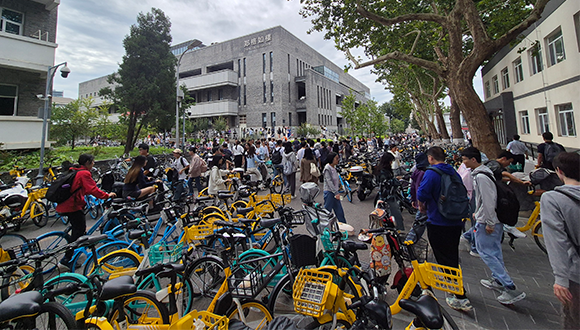
The sprawling campus of Peking University
You’ll learn how to handle new situations, build new connections, and grow more capable with every challenge.
What if I feel unwelcome as an Israeli student?
It’s a valid fear, but not what most students actually experience.
“A lot of people worry about how they’ll be treated abroad because of where they’re from. But honestly, I didn’t feel any hate or tension in China. Most of the international students just wanted to be friends and study together.”
“I did talk about my background with a few people, and everyone was respectful, even curious. The media doesn’t always reflect what’s really happening between students.”
Your experience will depend more on who you meet than where you go, and the exchange community tends to be open-minded and inclusive. Importantly, during each semester, TAU Outgoing Student Exchange Office opens a WhatsApp group where you can contact the staff personally in any emergency.
Does going on exchange help my career?
Without a doubt. Exchange adds serious value to your resume and worldview.
“Before this, I thought studying abroad was only for people from big-name universities or with perfect grades. But being in China made me realize I can do more than I thought.
It also opened my eyes to the possibility of doing a master’s abroad. I didn’t know how many options were out there, or that international students are sometimes even more welcome than you’d expect.”
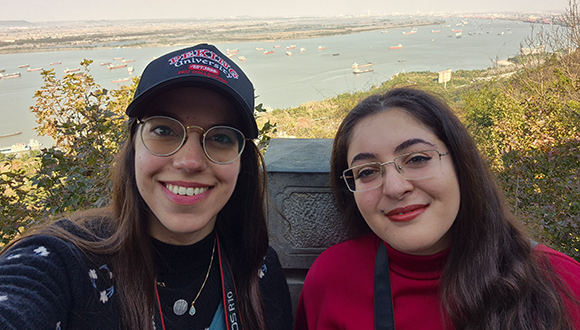
Whether you’re aiming for grad school or your first job, international experience gives you an edge.
So… should you apply?
Yes! Exchange is for anyone curious enough to take the leap. And as Oren’s story shows, it can completely reshape your confidence, your academics, and even your future.
Curious to see what opportunities are available for you?
Explore the range of programs, destinations, and partner universities here.
Please note that applications are open until July 31, 2025.
For detailed application guidelines, click here.
Still unsure? Reach out to the TAU Outgoing Student Exchangу Office and we’ll help you find the right fit, guide you through the application process, and support you throughout your time abroad.
Because this isn’t just about one semester abroad. It’s about who you’ll become when you get there.
